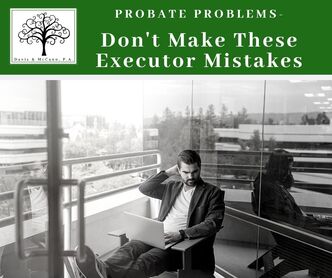 Are you unwittingly making mistakes as an Executor of an Estate? If so, you could be in for a legal battle of your own! To help protect you in your role as Executor, we’re sharing a few of the most common mistakes we’ve seen made by Executors, that you’ll want to avoid.
 You may find a point in time when your parent needs assistance with their finances. Taking over financial responsibility for a parent can be a touchy topic, but if done properly, can often provide a great sense of relief. If you have been appointed as your parent’s financial power of attorney and the time has come to begin assisting them, here are a few pointers to ease the transition:
 If your loved one is facing admission to a nursing home for long-term care and you’re concerned that you won’t have enough money to cover their expenses, there are a few things you should consider. With an average cost of over $5,600 per month for a semi-private nursing home room in Kansas (2019 Genworth Cost of Care Survey), very few of us could afford to private pay for a nursing facility for very long. KanCare is the Kansas Medicaid Program that you will apply to if you need government benefits to assist with payment in Kansas. Too often, well-intentioned friends, neighbors and non-elder law attorneys or other professionals make recommendations on how to apply for Medicaid benefits to cover nursing home expenses that result in a denial or extended delays in benefits, both of which result in unnecessary expenses to the applicant. To prevent this from happening to you, we’re sharing some things to consider:
Now that you are armed with more knowledge, remember to consult with an experienced elder law attorney should you need to file for Medicaid benefits in the future. More than one client has told us after we corrected an inaccurately filed Medicaid application, “I wish I would have just come to see you first!” If you have questions about Kansas elder law or Medicaid planning, contact Davis & McCann, P.A., Dodge City, Kansas at 620-225-1674. We are members of Wealth Counsel, a national consortium of Estate Planning Attorneys and the National Academy of Elder Law Attorneys (NAELA). We focus our practice on providing clients with the best legal advice on Estate Planning, Medicaid and Long-term Care Planning, Special Needs Planning, Family Business/Small Business Succession Planning, Probate, Trust Administration, Real Estate, 1031 Exchanges, and related matters.  It’s not uncommon for new clients to be undecided on what type of estate planning vehicle will work best for their situation. A good attorney will listen carefully to a client’s needs and wants to suggest the ideal estate plan to achieve a client’s goals (or explain why those goals are unrealistic or unachievable). To help you prepare for your initial visit with your estate planning attorney, we’ve put together some of the questions you should consider before your meeting. This list isn’t comprehensive, but if you can answer most of these questions, your attorney will be better able to guide you toward the type of estate plan that will best serve your needs.
If you have questions about Kansas estate planning, contact Davis & McCann, P.A., Dodge City, Kansas at 620-225-1674. We are members of Wealth Counsel, a national consortium of Estate Planning Attorneys and the National Academy of Elder Law Attorneys (NAELA). We focus our practice on providing clients with the best legal advice on Estate Planning, Medicaid and Long-term Care Planning, Special Needs Planning, Family Business/Small Business Succession Planning, Probate, Trust Administration, Real Estate, 1031 Exchanges, and related matters. |
NEWS YOU CAN USEDavis & McCann, P. A., Archives
April 2021
Categories
All
|

 RSS Feed
RSS Feed